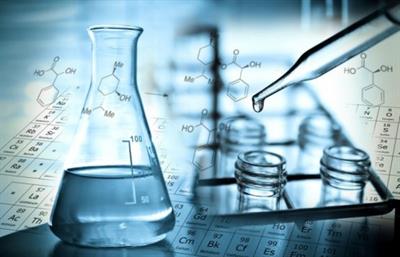Trick Considerations for Picking the Right Chemical Products to Accomplish Reliable Integrated Solutions in Your Workflow
Picking the proper chemical products for incorporated options in procedures requires a complex method that encompasses different critical considerations. From analyzing chemical compatibility to guaranteeing adherence to regulative criteria, each variable plays an essential duty in enhancing operational effectiveness and safety and security. Examining environmental impacts and supplier integrity can not be ignored in this elaborate decision-making process. As organizations strive to enhance their methods, the interplay of these elements elevates essential concerns concerning ideal practices and potential challenges that warrant additional exploration.
Comprehending Chemical Compatibility

To assess compatibility, one should consider variables such as the chemical homes of the substances entailed, including pH, focus, temperature, and the visibility of impurities. Making use of compatibility graphes and data sources can supply beneficial insights right into potential communications. In addition, carrying out small-scale examinations can help recognize unexpected responses that might not be documented.
In addition, understanding the ecological conditions in which the chemicals will certainly be stored or made use of is vital. Variables such as humidity, light direct exposure, and temperature level can affect the stability and sensitivity of chemical items. By focusing on chemical compatibility throughout the choice process, organizations can boost operational performance, reduce the threat of crashes, and ensure conformity with safety protocols. Inevitably, an educated method to chemical compatibility is fundamental for preserving safe and effective operational settings.
Evaluating Regulatory Conformity
In the complicated landscape of chemical product selection, evaluating regulatory conformity is extremely important to making sure not just safety and security however also lawful adherence. Organizations needs to navigate a myriad of laws, from regional and national regulations to worldwide criteria, that govern the usage, storage, and disposal of chemical materials. This needs a detailed understanding of appropriate guidelines such as the Occupational Safety And Security and Wellness Management (OSHA) criteria, the Epa (EPA) guidelines, and the European Union's Registration, Analysis, Authorisation and Constraint of Chemicals (REACH)
When picking chemical items, it is essential to verify that distributors offer Security Information Sheets (SDS) that information prospective risks and managing needs. Services must confirm that the chemicals conform with industry-specific policies, which might enforce additional terms. Non-compliance can cause serious penalties, including penalties and functional shutdowns.
Additionally, companies ought to stay updated on governing adjustments, as non-compliance can develop from outdated techniques. Creating a robust conformity technique, including regular audits and employee training, can help make sure adherence visit this web-site to current regulations. Inevitably, prioritizing regulative compliance not just reduces danger yet also improves the company's track record and functional efficiency.
Assessing Environmental Effect
How can companies successfully over at this website examine the ecological effect of chemical items throughout the option process? Organizations needs to start by recognizing the possible threats associated with each chemical, including toxicity, determination in the environment, and bioaccumulation possibility.
Furthermore, companies can take advantage of third-party certifications and eco-labels that suggest conformity with ecological standards - Chemical Products. Involving with providers that prioritize sustainability techniques can also improve the selection process. It is critical to evaluate not just the straight results of chemical usage however also the indirect effects, such as power consumption and waste generation
Carrying out life cycle analysis (LCA) methods can give detailed insights into the environmental footprint of chemical items, highlighting locations for improvement. By prioritizing openness and collaboration with stakeholders, companies can make enlightened decisions that line up with their sustainability goals while reducing damaging environmental end results. This aggressive method inevitably promotes a much more accountable and eco-conscious operational framework.
Assessing Cost-Effectiveness
While evaluating chemical items for operational usage, organizations have to additionally take into consideration cost-effectiveness as an essential factor in the choice process. This includes examining not just the initial acquisition rate but likewise the overall cost of ownership, that includes elements such as usage efficiency, maintenance, and disposal expenses. Chemical Products. A product that shows up low-cost upfront might sustain higher prices in power consumption or require more constant substitute, inevitably impacting the lower line
In addition, organizations should examine the capacity for price financial savings via optimized solutions that improve efficiency and decrease waste. Products that call for reduced application prices or provide faster processing times can lead to substantial cost savings over time. It is also necessary to consider the influence of governing conformity expenses, as non-compliance can lead to fines and enhanced operational expenditures.
In addition, companies must assess the long-term worth acquired from the chemical products, including improved top quality, boosted efficiency, and improved safety. A thorough cost-effectiveness evaluation empowers companies to make educated decisions that line up with both their financial objectives and operational purposes, eventually leading to lasting and efficient methods.
Identifying Supplier Integrity
Vendor reliability is extremely important when choosing chemical items for operations, as it straight affects both product top quality and operational effectiveness. A reputable distributor regularly supplies top notch products in a timely manner, ensuring that your processes stay uninterrupted. To recognize supplier visit this web-site dependability, start by evaluating their online reputation within the market. Choose testimonials, testimonials, and situation studies that highlight their performance and customer fulfillment degrees.
Next, take into consideration the distributor's history of compliance with laws and criteria. A trusted supplier should have a durable high quality guarantee program that follows industry standards. Additionally, evaluate their capability to provide technological support and product details, which is vital for informed decision-making.

Verdict
In final thought, choosing the suitable chemical products for incorporated options necessitates a detailed examination of a number of vital aspects. Comprehending chemical compatibility, guaranteeing regulatory conformity, evaluating environmental impacts, analyzing cost-effectiveness, and identifying trusted suppliers collectively contribute to informed decision-making.